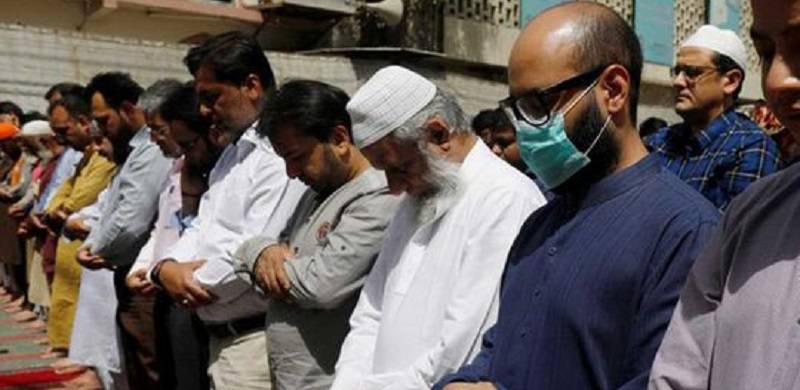
There is sufficient evidence before the public to be able to conclude that the government's arrangement with the religious lobby to keep mosques open has failed. This is clear from both documented reports as well as anecdotal observations. A simple drive past a mosque on a Friday afternoon or during Taraveeh times will confirm it for those still in doubt.
Whether one sees it as an 'agreement', 'compromise', 'solution' or 'capitulation' is a matter of perspective. But the arrangement and the Standard Operating Procedures (SOPs) that it produced were meant to prevent the spread of the Coronavirus in the country due to congregations of people.
The SOPs were already in total defiance of medical opinion. Even if enforced, they did not amount to the social distancing needed to keep the pandemic in control. Yet if these ill-conceived measures could have done any little good, they needed to be implemented.
The government and its religious interlocutors both have shown no interest in implementation.
That the religious leadership in Pakistan have failed to counter or manage the more reactionary and irresponsible elements among their ranks is no secret. But a burning question remains.
Why did the government enter into such an arrangement when it knew that the clerics that it was dealing with lacked the interest, authority and ability to ensure implementation?
This is compounded by the fact that the Prime Minister himself mentioned the possibility of revisiting the decision to keep mosques open if the SOPs did not produce the desired outcome.
In any case, it is now a matter of the utmost urgency that the government revisits its decision. Regardless of the original folly of the arrangement, the government must now take the posture necessary when the other side violates a major commitment. There is absolutely no point in waiting to see if the religious leadership across the country has a change of heart or conscience.
The final responsibility for public health and safety lies with the federal government, and not with the mullahs before whom it claims to be helpless. Indifference will be seen as no different from complicity, if the Covid-19 crisis worsens in Pakistan.
Whether one sees it as an 'agreement', 'compromise', 'solution' or 'capitulation' is a matter of perspective. But the arrangement and the Standard Operating Procedures (SOPs) that it produced were meant to prevent the spread of the Coronavirus in the country due to congregations of people.
The SOPs were already in total defiance of medical opinion. Even if enforced, they did not amount to the social distancing needed to keep the pandemic in control. Yet if these ill-conceived measures could have done any little good, they needed to be implemented.
The government and its religious interlocutors both have shown no interest in implementation.
That the religious leadership in Pakistan have failed to counter or manage the more reactionary and irresponsible elements among their ranks is no secret. But a burning question remains.
Why did the government enter into such an arrangement when it knew that the clerics that it was dealing with lacked the interest, authority and ability to ensure implementation?
This is compounded by the fact that the Prime Minister himself mentioned the possibility of revisiting the decision to keep mosques open if the SOPs did not produce the desired outcome.
In any case, it is now a matter of the utmost urgency that the government revisits its decision. Regardless of the original folly of the arrangement, the government must now take the posture necessary when the other side violates a major commitment. There is absolutely no point in waiting to see if the religious leadership across the country has a change of heart or conscience.
The final responsibility for public health and safety lies with the federal government, and not with the mullahs before whom it claims to be helpless. Indifference will be seen as no different from complicity, if the Covid-19 crisis worsens in Pakistan.
